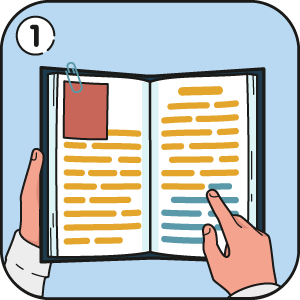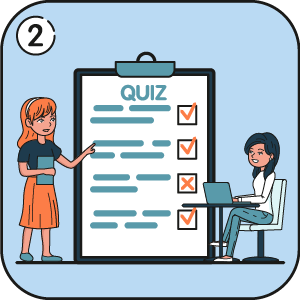Customer Services


Japanese Short Stories for Beginners: 20 Captivating Short Stories to Learn Japanese & Grow Your Vocabulary the Fun Way! (Easy Japanese Stories)





J**E
Great book!
As an intermediate learner, I love this book for doing very light reading during those days where I don't have the time to read more complicated things. I usually prefer playing text-heavy video games (RPJs usually) as a default way to learn, but sometimes work does not let me dedicate at least 2 uninterrupted hours of in-game reading a day.There are 20 chapters in this book. Each chapter takes a maximum of 15 minutes to go through (at my current level) with very simple reading comprehension quizzes at the end of each chapter. As expected, both the vocabulary and grammar are pretty basic...I'd say no more than JLPT N5 level. There are a few kanji, vocabulary, and grammar points that are well above N5, but those are the very minimum and there is always furigana. I understand this book is meant for beginners, but as a very busy intermediate student of the language who understands the importance of practicing reading comprehension every single day no matter how complicated the day is this book has been helpful. Now, granted, for anyone who is intermediate you probably only want to use this book if you really don't think you can get to reading something more on par to your level for that day. This is not an every day book for that kind of situation...I do wish there was no furigana in the complete version of each story though. I understand it's just to make it accessible to readers, but every time I see furigana (not just in this book but everywhere that has it) even if it's kanji and words I'm 100% familiar with my eyes will always gravitate towards the furigana. I also wish there was more kanji being used here instead of just kana for words that are more commonly written in kanji, but I guess that's expected as it's meant for beginners.
C**I
Dude this book is awesome!
I love it! Perfect for me. This book is easy for me to read and I recognize most of the kanji on the page, but at the same time I'm learning new phrases, too. (I've been studying Japanese for a little over a year. I'm level 26 in WaniKani.) I just think it's so cool to be able to read in foreign languages.
K**S
An indispensible little book
I really can't stress how happy I am that I got this book. I am self-teaching Japanese, and this short story book has been soooo helpful. It also gave me self-confidence to keep going because I get really excited when I understand a sentence! There is furigana above most of the kanji, the line spacing is wide to help you keep your place, it is written left-to-right, and certain words are in bold with glossary definitions. I am still at N4/N5 level, and this is the right difficulty for me--really hard but not impossible. I have gotten through about five stories at a snail's pace, picking up lots of vocab and understanding more grammar as I go. The stories seem to purposely make use of words you encountered in previous stories to give you practice with them.The only critique I can make is that occasionally a word is in bold but was left out of the glossary. A little annoying, but nothing a Google search can't remedy.I only wish there were more books like this from Lingo Mastery. Like maybe a whole set of increasingly difficult short story collections.
E**.
Pretty good!
I have been studying Japanese pretty intensely for a year. Not in a college course. I have a teacher who's Japanese (lives in Tokyo) and meet with her twice/week via video. I read hiragana and katakana pretty fluently and kanji not at all.I have been searching for beginner's books that I could use like I did with Dr. Seuss in elementary school, 60 years ago. Unfortunately, even the most basic Japanese children's books naturally assume a kid's command of the language. It's likely that a parent would read it to them.I like it that they have a couple of sentences followed by the English translation. But for a beginner, I don't understand why they have kanji. I also found words and phrases that are new to me and not shown in their vocabulary list, such as いくとき (ikutoki) which means something like "when going". This word is used four times in the second sentence of the first story and it's not in the vocab list?I am very grateful that the only romaji they use is in the vocabulary. I wish they hadn't shown kanji at all. Furigana, while helpful, is so tiny that it's hard to read.They also have — like they do in Japan — all of the words packed together without spaces. Japanese readers don't need them because they have "particles" that delineate the words and adds to the meaning. Fine, but for me, I need to have spaces between the words, like they do in textbooks. Hey, it's what we're used to, no? And, it makes it a heck of a lot easier to identify the words in the story and in the vocabulary.I am thus typing the story into a document on my laptop showing only the hiragana and katakana, with spaces between the words. I'm also entering the translation that they provided. No worries, I am not going to give this file to anyone else. It's simply a learning exercise and tool for me.So, I think it's a helpful book to have in my learning journey, and I look forward to reading the stories over and over to help me learn the vocabulary, phrases, and yes, the particles.
Trustpilot
4 days ago
2 months ago